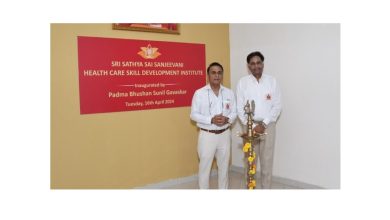Fortis Hospitals joins hands with RNTCP & ICMR for a TB free India

Fortis Hospitals, Bangalore in association with Revised National Tuberculosis Control Programme (RNTCP) and Indian Council of Medical Research (ICMR) conducted ‘Tuberculosis Symposium’ with an aim to support government’s vision for a TB Free India. The symposium focussed on various aspects of Tuberculosis and the ways to eradicate it followed by a panel discussion and Q&A.
Along with senior doctors from Fortis Hospitals, various other doctors from National Tuberculosis Institute, ESIMC, and members of State TB Cell took part in the conference. The panel discussed on the Global & Indian Scenario, Diagnosis of TB, EPTB( Extra Pulmonary Tuberculosis), Treatment of TB, Role of Private Sector in Elimination of TB, Programmatic Management of Drug Resistant TB during the symposium.
According to the World Health Organisation, India reported the world’s highest number of TB cases, of which at least half are treated in the private sector and their diagnoses and treatment are not noted in government records. A recent study revealed that there is an increase in active TB cases, with Karnataka reporting 68,000 cases last year.
Dr Shripad Patil, Director, ICMR-NGIL&OMD, Agra said, TB Free India campaign aims to ensure access to accurate diagnosis, affordable treatment and support to each TB patient. Kill the Killer.”
Dr Shalini Joshi, Senior Consultant , Internal Medicine Fortis Hospital, Bannerghatta Road said, “ The symposium brought all the private and public stakeholders at one platform to help each other work towards the same goal. We are optimistic that through our joint efforts, we will be able to provide our best to the patients.”
In an attempt to eliminate tuberculosis in India, Union Budget 2018 allocated Rs 600 crores for nutritional support to TB patients in India. This allocation, with an addition to Rs 1200cr set aside as patient social and nutritional support under national strategic plan for tuberculosis budget (2017-2020) is said to decrease the fall-out of patients from treatment due to lack of nutritional support.




